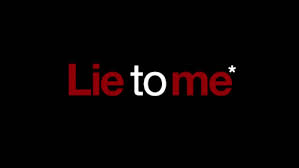Another piece of disturbing news about how Germany wants to extend copyright to cover giving newspapers the right to control their headlines. I was first alerted to this article Intellectual Property: Political Excesses - Or: Let Schumpeter's Creative Destruction Do Its Work. The article like the last two posts on the media that I have written highlights the scary propositions put forward by the old established media players that have by their actions or as the case my be inactions indicate that they are not willing to compete in the new landscape created by the internet let alone adapt or change. ""It looks as if publishers might really be lobbying for obtaining a new exclusive right conferring the power to monopolise speech e.g. by assigning a right to re-use a particular wording in the headline of a news article anywhere else without the permission of the rights holder. According to the drafts circulating in the internet, permission hall be obtainably exclusively by closing an agreement with a new collecting society which will be founded after the drafts have matured into law. Depending on the particulars, new levies might come up for each and every user of a PC, at least if the computer is used in a company for commercial purposes.
Well, obtaining monopoly protection for sentences and even parts of sentences in a natural language appears to be some kind of very strong meat. This would mean that publishers can control the wording of news messages. This comes crucially close to private control on the dissemination of facts.""
Exactly and this is what has me concerned Techdirt also did a very good commentary on this issue as well that you can read here I specifically agreed with this extract of their analysis.
"Mr Castendyk concludes that even if the envisaged auxiliary copyright protection for newspaper language enters into law, the resulting additional revenue streams probably would be insufficient to rescue the publishing companies. He then goes a step further and postulates that publishing companies enjoy a quasi-constitutional guantee due to their role in the society insofar the state has the obligation to maintain the conditions for their existence forever. As I'm not a constitutional lawyer I won't comment this here but, with all due respect, I would not be very much surprised if such sentence turns out to be lobbyist speech. Utilising the leveraging effect of this postulated quasi-constitutional guarantee, Castendyk demands to amend cartel law in order to enable a global 'pooling' of all exclusive rights of all newspaper publishers in Germany in order to block any attempt to defect from the paywall cartell by single competitor as discussed above."
So as you can see my concerns over excessive and over zealous state imposed sanctions of what we and other can do and report in regard to the news is not just peculiar to myself.
related posts
The Doctrine Of Hot News and why it troubles me ,




